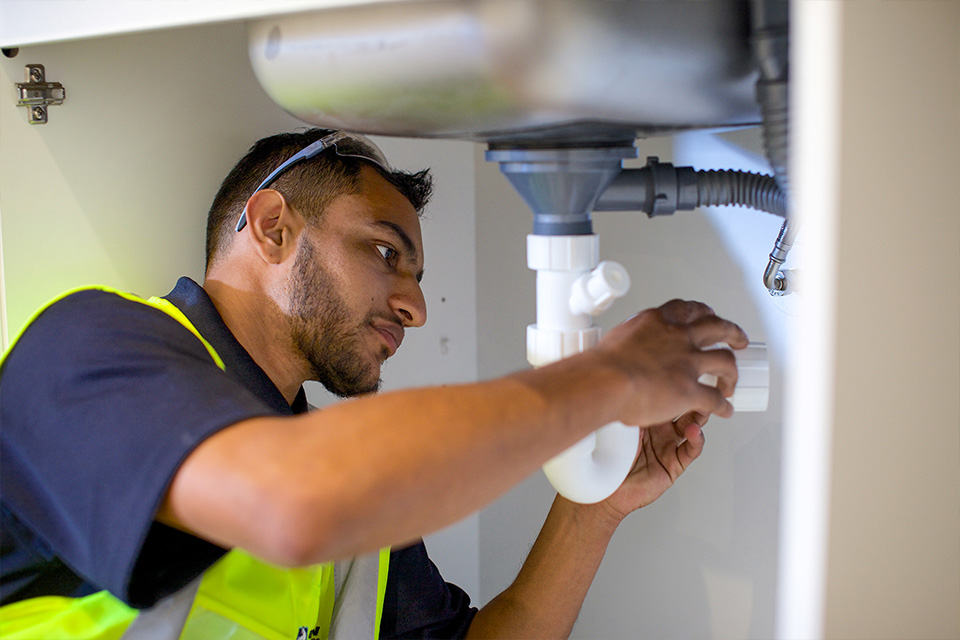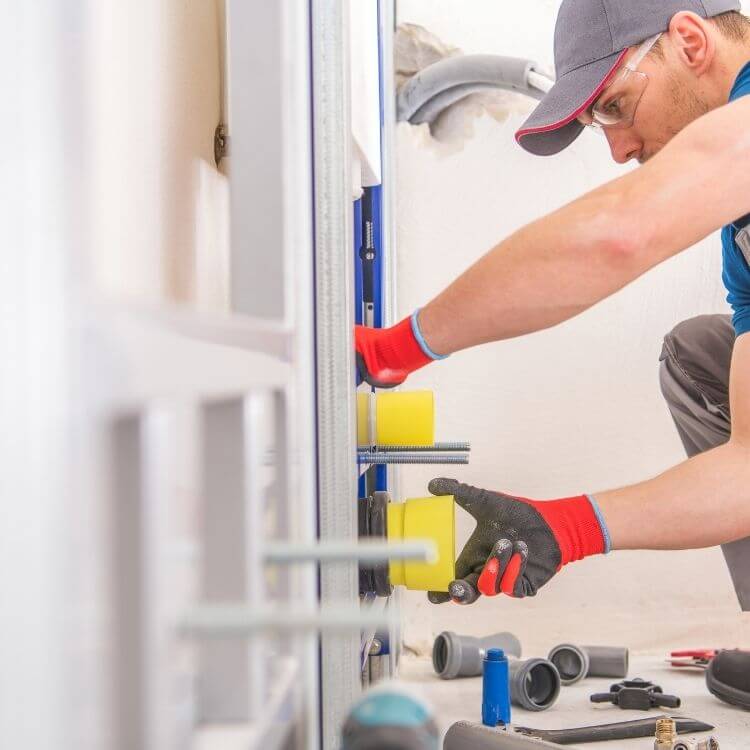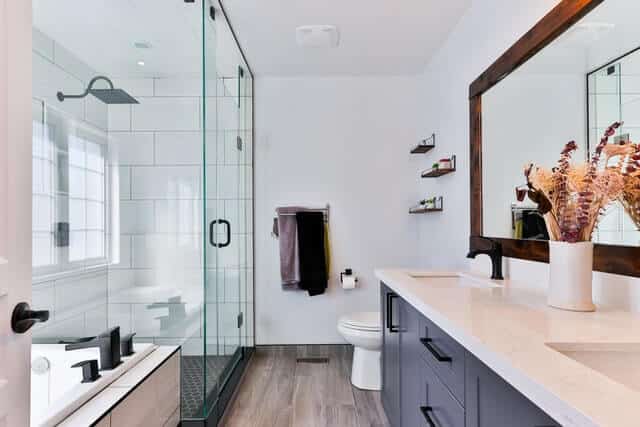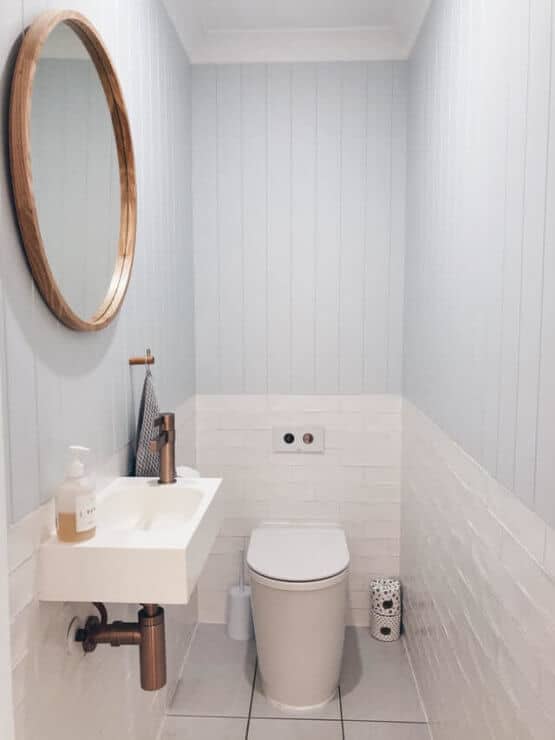If you’ve ever encountered a leaky tap, a burst pipe or a malfunctioning water heater, you understand the importance of having a reliable and skilled plumber at your service.
Plumbing issues can disrupt your daily routine and cause significant inconvenience, not to mention potential damage to your property. However, before hiring a plumber, it’s essential to have a clear understanding of the costs involved.
Knowing the average pricing for plumbing services can help you make informed decisions and avoid unexpected expenses.
Plumbing costs can vary significantly depending on factors such as location, type of job, complexity and the plumber’s experience. From minor repairs and installations to large-scale plumbing projects, each service comes with its own pricing structure.
In this article, we’ll delve into the key factors that influence plumbing costs in Australia. We’ll explore the average rates for common plumbing tasks, discuss additional expenses you might encounter, and offer tips on finding a reliable and cost-effective plumber. Armed with this knowledge, you’ll be better equipped to budget for plumbers in Australia and find the right professional for your needs.
So, if you’re ready to unravel the mystery of plumbing costs in Australia, let’s dive in and discover what it takes to keep your pipes flowing smoothly without draining your wallet.
Factors Affecting Plumbing Costs

When it comes to hiring a plumber in Australia, several factors can influence the overall cost of their services. Understanding these factors can help you estimate the expenses involved and make informed decisions. Here are some key considerations that affect plumber costs:
- Type of service: The nature of the plumbing work required greatly impacts the pricing. Simple tasks like unclogging a drain or fixing a leaky tap generally have lower costs compared to complex installations or repairs.
- Time and emergency services: Plumbers may charge differently based on the time of day or urgency of the job. Emergency services, such as attending to burst pipes in the middle of the night, may come at a higher cost than regular business hours.
- Complexity of the job: The complexity of the plumbing issue plays a significant role in determining the cost. Projects that involve intricate installations, extensive repairs, or require specialised skills may require higher charges.
- Materials and equipment: The cost of materials and equipment needed for the job is typically included in the overall service charges. Depending on the specific requirements, the prices may vary.
- Location: Plumber costs can vary based on the geographical location within Australia. Prices in metropolitan areas might be higher compared to regional or remote areas due to differences in operating expenses and competition.
- Reputation and experience: Established plumbers with a good reputation and extensive experience may charge higher rates for their expertise. Their track record and skills often justify the increased cost.
Remember that plumber costs can vary significantly, so it’s advisable to obtain multiple quotes and compare services before making a final decision. It’s essential to prioritise quality and reliability alongside pricing considerations to ensure a satisfactory plumbing experience.
Typical Range of Plumber Costs
Plumbers charge for their services based on various elements, including the complexity of the job, the location and the plumber’s experience and reputation. Understanding the typical range of plumber costs can help you plan your budget accordingly and avoid any surprises.
For smaller plumbing jobs such as fixing a leaky tap or unclogging a drain, you can expect to pay around $80 to $150. These are relatively simple tasks that can be completed quickly, and the costs reflect the simplicity of the job. [1]
More complex plumbing projects, such as installing new pipes or replacing a water heater, require more time and expertise. The cost for such projects can range from $200 to $600 or more, depending on the scope of work involved. This doesn’t include the cost of the materials involved (such as a hot water system, fixtures or pipes). Accessibility of the plumbing system can also influence the overall cost.
Emergency plumbing services typically come at a higher price due to the immediate response and availability required. The cost for emergency plumbing services can range from $150 to $300 per hour, depending on the plumber and the time of day.
Keep in mind that these are average price ranges and can vary based on your location. It’s always a good idea to obtain multiple quotes from different plumbers whenever possible, to ensure you’re getting a fair price for the specific plumbing services you require.
The Pros and Cons of Fixed Pricing
Plumbers generally offer two types of pricing: fixed pricing and hourly rates. To help you make an informed decision, let’s explore the pros and cons of fixed pricing.
Fixed pricing, also known as upfront pricing, involves a predetermined cost for a specific plumbing job. One of the major advantages of fixed pricing is transparency.
With a fixed price, homeowners know exactly how much they will be charged for the service upfront, eliminating any surprises or hidden costs. This allows for better budgeting and avoids any potential conflicts over billing later on.
Another benefit of fixed pricing is that it incentivizes efficiency. Since plumbers are aware of the fixed price for the job, they are motivated to complete the work as quickly and efficiently as possible. This can lead to faster turnaround times and minimise disruptions to your daily routine.
However, fixed pricing does have its drawbacks. One of the main concerns is that the fixed price may be higher than what you would pay based on hourly rates, especially for small or straightforward jobs. If the job can be completed quickly, you may end up paying more for the service under a fixed-price model.
Additionally, some argue that fixed pricing might discourage plumbers from taking on complex or time-consuming projects. Since they earn a fixed amount regardless of the time spent, plumbers may be less inclined to invest the necessary effort to solve intricate plumbing issues.
When choosing between fixed pricing and hourly rates, it is essential to assess the nature of the plumbing job and consider your specific needs and budget to make the best decision for your circumstances. [2]
Read Also: How To Fix a Weak Flushing Toilet
Tips for Managing Plumbing Costs

The best ways to avoid steep plumbing costs are preventive measures and a quick response to small problems. Here are some tips on stopping those minor faults turning into a plumbing crisis.
- Regular maintenance: One of the most effective ways to manage plumbing costs is to schedule regular maintenance for your plumbing system. By identifying and fixing small issues early on, you can prevent them from turning into costly repairs later. Consider hiring a professional plumber for annual inspections to catch any potential problems.
- DIY when appropriate: While some plumbing issues require professional expertise, there are certain tasks you can tackle yourself to save money. For example, minor clogs in sinks or toilets can often be resolved with a plunger or a drain snake. However, it’s important to know your limits and avoid attempting complex repairs that may cause more harm than good.
- Quick response to leaks: Leaks can lead to significant water damage and increased water bills if left unaddressed. Act promptly if you notice any signs of leaks, such as damp spots, mould growth, or an unexplained increase in your water bill. Fixing leaks early can prevent further damage.
- Research and compare prices: When hiring a professional plumber, it’s essential to research and compare prices from different service providers. Obtain multiple quotes and evaluate the reputation, experience and qualifications of each plumber before making a decision. Remember that the cheapest option may not always be the best quality, so consider the overall value and expertise offered.
- Upgrade to water-efficient fixtures: Consider upgrading your plumbing fixtures to water-efficient models. Low-flow toilets, taps and showerheads can significantly reduce water consumption, leading to lower water bills.
- Preventive measures: Take preventive measures to avoid plumbing emergencies. Avoid flushing items that can clog the pipes, such as wipes or sanitary products. Be mindful of what goes down your drains and avoid pouring grease or oil, as they can cause blockages. Properly insulate exposed pipes during colder months to prevent freezing and bursting.
By following these tips, you can effectively manage your plumbing costs and ensure the smooth operation of your plumbing system. Remember that investing in regular maintenance and addressing issues promptly can save you money in the long term.
Read Next: Tall vs Short Water Heater
Bottom Line
The cost of hiring a plumber in Australia can vary depending on several factors. The complexity of the job, the location and the plumber’s experience all play a role in determining the overall cost.
While it is difficult to provide an exact figure, it is essential to obtain multiple quotes and compare prices from different plumbers before making a decision.
Remember to consider the quality of work, warranties, and any additional services offered by the plumber. Investing time and effort in finding the right plumber at a reasonable cost will ensure that your plumbing needs are met efficiently and within your budget.

Michael Davis is a heating & plumbing expert who currently works as independent contractor in SC. He also writes for Plumbertip.
For almost 10 years he worked on various plumbing tasks across South Carolina.



